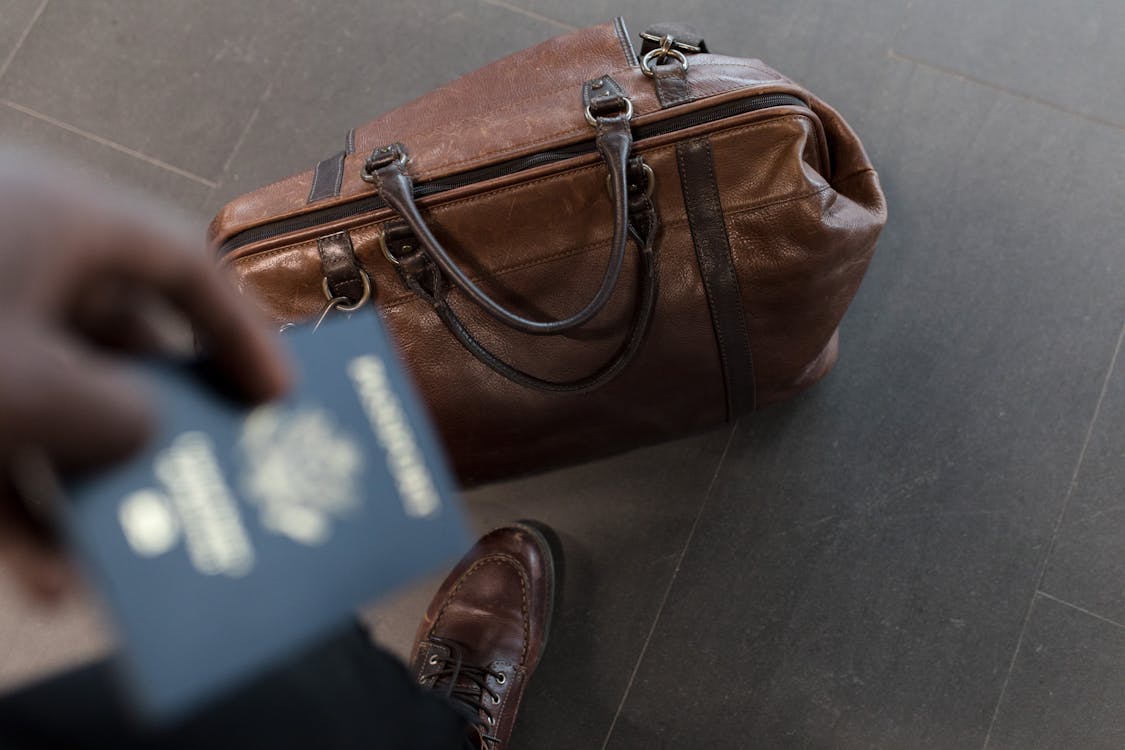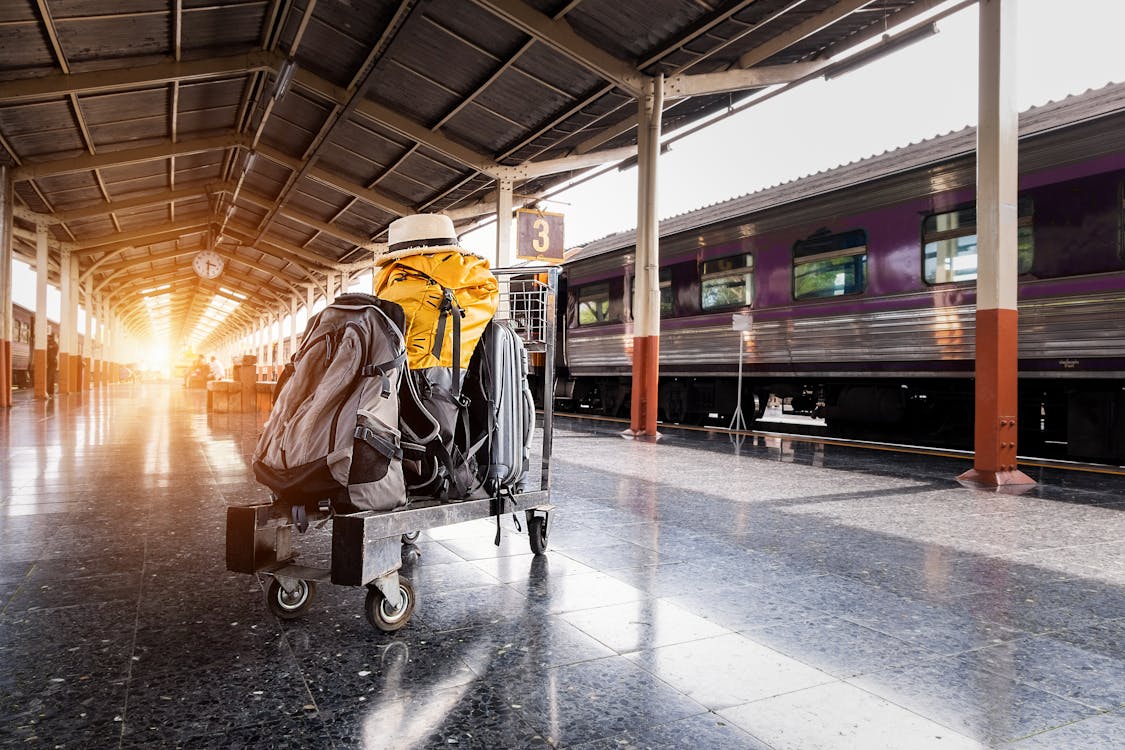What to pack for study abroad?
You absolutely need a study abroad packing list – don’t wing it! Take it from me, it’s no fun realizing that you’ve forgotten that one extremely important item the second the plane wheels lift up. In the weeks and days of excitement that lead up to your study abroad program, it’s easy to miss the little things that will end up making your time abroad much easier and more enjoyable. Spend a little time planning ahead and you will be glad that you did it.
So if you’ve been wondering…
What should I pack for my study abroad program?
Look no further:
The ultimate study abroad packing list
| Item | Description | Link |
|---|---|---|
| Clothing | Pack appropriately for the climates and occasions you will encounter | |
| Spare clothing | Keep at least one outfit in your carry-on, you may thanks yourself later | |
| International outlet adapters | To be able to charge and power your electronics wherever you go | Check price |
| Pocket dictionary | Even if you have a travel smartphone, you may not have data everywhere | Check price |
| Flip flops | Great for hostel showers or beach days (for certain climates!) | Check price |
| TSA-compliant toiletry Kit | The best way to guarantee your necessary items make it through security | Check price |
| TSA-compliant water bottle | Packs completely flat and saves you from buying $4.00 water at the airport | Check price |
| Local currency | Don't rely solely on credit cards, just in case! | |
| Passport holder | Keep your most important document well-protected | Check price |
| Money belt | Hide your cash from potential pickpockets | Check price |
| Camera | It goes without saying you'll want to capture your memories | Check price |
| DIsposable cameras | If you're traveling where your nice camera might get stolen or lost | Check price |
| Durable laptop | An additional laptop besides your primary, preferably that's designed to travel well | Check price |
| Laptop case | Get a rugged case, your laptop is going to get shuffled around | Check price |
| Flash drive | To back up your photos - trust us, you'll take a lot | Check price |
| MP3 player | A separate music device so you don't drain your phone battery on long flights / rides | Check price |
| Headphones | Commonly forgotten, and exorbitantly expensive to buy on the flight | Check price |
| Sleeping bag | If you're hostel-hopping, bring your own bedding! | Check price |
| Travel journal | To write your thoughts and experiences down | Check price |
| Extra batteries | SOMETHING is going to need them eventually. And yes, you can fly with (most kinds) | Check price |
| Copies of IDs | Carry a copy of your birth certificate, SS card, and license separately from the originals | |
| Emergency contact list | Phone numbers you might need in case of an emergency | |
| Portable stain remover pen | For when you have a spill and can't do laundry right away | Check price |
| Motion sickness medicine | Even if you've never gotten motion sickness, this isn't when you want to start | Check price |
| Daily multivitamin | You're going to be encountering new germs, keep yourself healthy | Check price |
| Anti-theft day pack | Get a smaller backpack to take on the day-long excursions | Check price |
| Playing cards | For keeping yourself entertained while waiting (possibly without electricity) | Check price |
| Small paperback books | For keeping yourself entertained while waiting (possibly without electricity) | Check price |
| Travel raincoat | A travel poncho that can roll up into a small ball | Check price |
| Travel umbrella | A small folding umbrella | Check price |
| Watch | A durable watch for when you need to know the time and don't have cell service | Check price |

Most often forgotten must-have items to pack for international travel
Study abroad programs (or just independent foreign travel) is one of, if not the best, methods of learning a new language. Complete immersion, in everything from the menus to the street signs, will force you to learn more quickly and completely. But, if you are distracted by mundane worries such as forgotten daily items, you have much less available cognitive power to focus on your language acquisition goals. Make sure your study abroad experience is as enriching and educational as possible. Don’t spend your time worrying about forgotten items – use this study abroad packing list and you’ll be all set.
How many suitcases should I take to study abroad?
Honestly, you should not take more than one suitcase to study abroad. Many study abroad students that bring 2-3 bags end up having their parents take some back with them after they visit! You need to be extremely honest and realistic with yourself about what you can really not live without. You will have to balance packing enough to be prepared for a wide variety of situations and activities, while not overburdening yourself for extended travel. Definitely pack a smaller bag so that you are not stuck using your large luggage for weekend trips.
To help yourself fit all of your study abroad necessities into just one suitcase, consider this:
While you want a variety of clothing for different occasions (comfortable and breathable for travel, something slightly formal for fancy dinners or events, and probably some sporting gear, so on), you should not need to pack any more than two weeks worth of outfits. Keep in mind that you may want to purchase local clothes rather than wearing your American outfits. You are also better off bringing no more than four pairs of durable, versatile shoes.
If you forget anything, decide you need more of something, or need clothes for a different season partway through your trip, the cost of shipping these items may not even be much more than the checked luggage fee would have been.
To help you pack light, here are a couple more things to consider leaving at home:
What should you not bring to study abroad?
Expensive or one-of-a-kind items
Do not bring anything overly expensive, sentimental, or irreplaceable. It’s all too easy to drop something or accidentally leave in behind when you’re on and off of buses and in and out of airports. When you’re constantly on the move, you’re bound to lose something eventually – and you don’t want that to be the thing that breaks your heart.
Furthermore, some Spanish speaking countries have significantly more instances of pickpocketing or “snatch and runs”. This is particularly true in touristy areas, where thieves know there will be large crowds, distracted outsiders with cash, and easy to pawn items like cameras.
Banned air travel items
This one may sound obvious, but it’s often forgotten. Don’t pack anything that you can’t bring on a plane! This means no water bottles or large liquids (shampoo, contact lens solution, etc.), nothing sharp, and be wary of certain batteries. Check the TSA website for more detailed guidelines.
Even if you are not planning on traveling by plane once you arrive at your destination, your plans may change. So be sure to buy travel-size cosmetics and toiletries even after you arrive.
Also keep in mind that the airlines abroad may have slightly different carry-on regulations than you are used to back home, so do your research in advance and be conscientious.
Culturally inappropriate attire
Unlike in America, many other countries frown on wearing things like flip-flops, shorts, sweatpants or hoodies out in public – especially to work or class. To make the most of your study abroad experience, you’d like to blend in. So do some research on your destination ahead of time to avoid sticking out like a sore thumb.
Heavy items
Another obvious one, but we are talking in particular about books. Many people back a few favorite books to ward off homesickness, or a particularly dense travel guide or phrasebook. Great idea, but when you’re expecting to do a lot of traveling, you need to learn to think like a backpacker. Every ounce counts! Consider packing an e-reader instead of physical books, and load it up with tons of options for all of the plane, train, and automobile time.
Electronics
Besides the fact of theft, which we’ve already discussed, there’s another reason not to bring too many electronics to study abroad. If you bring them, you’re bound to use them, which might detract from your enjoyment of being in the moment. If you leave them at home, you won’t even have the option of being distracted, and you can focus on taking in the sights. The definite exception is anything that you might need for navigation or safety. But ditch the portable games before you leave.
Blow dryer or curling iron
Unless you have a very specific outlet adapter, you may run into voltage problems with any item that produces heat. The cheapo international power adapters don’t always convert this appropriately, which could damage your item or even cause a fire. Consider buying these locally, so that they have the correct plug type natively.

What is the best suitcase for international travel?
Here is our study abroad luggage recommendation:
Any suitcase over 23″ is going to be unwieldy in airports, try to stick to 20″ if it is at all possible. Keep in mind that luggage is only technically considered “international-sized” if it is 21” or less, but many airlines set their own arbitrary limits at 20″. Exceeding this limit can sometimes be accompanied by a hefty fine of $50 or more. That’s why we recommend using the smallest suitcase that you can reasonably fit your essentials into.
Is hardshell or softshell luggage better for study abroad?
International luggage is available in hardshell or softshell (sometimes also referred to as “hardside vs. softside Luggage”). We usually recommend softshell luggage, although this one boils down to personal preference, and garners a lot of debate. There are a lot of factors to consider: hardhells are more durable and generally easier to clean, whereas softshells are much lighter and more maneuverable. Hardshells have waterproof and vibration-resistant options, but they are harder to stuff into a cramped overhead bin. Softshells collapse more easily, tend to have tons more storage compartments (especially on the outside), and don’t scuff up as easily – but may not be as protective against rough handling.
More articles you might like:
Most difficult Spanish words to say
Learn Spanish while driving
Learn Spanish audio books free
Goodnight in Spanish
This study abroad packing list includes affiliate links that support this website with a small commission if you make a purchase. The price shown to you is not impacted.